PRESS & NEWS
Quick Question September 2024 Result: Are you a current caregiver for someone with an FTD disorder?
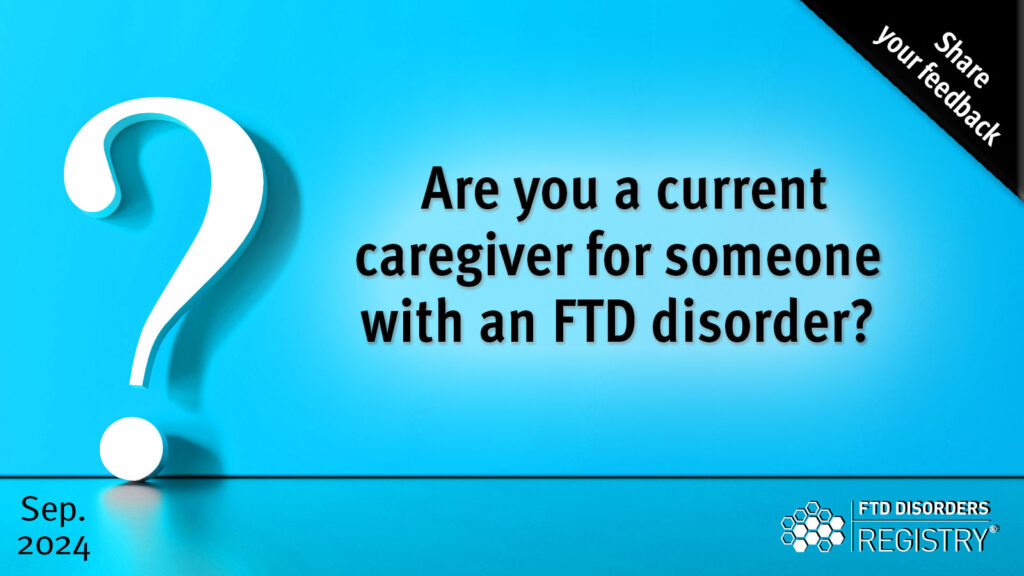
698 people answered the FTD Disorders Registry’s September Quick Question about whether they were a current caregiver for someone with an FTD disorder.
698 people answered the FTD Disorders Registry’s September Quick Question about whether they were a current caregiver for someone with an FTD disorder.
The majority of respondents (70.1%) were current or former caregivers for someone with an FTD disorder. 29.9% of respondents states that they were not caregivers.
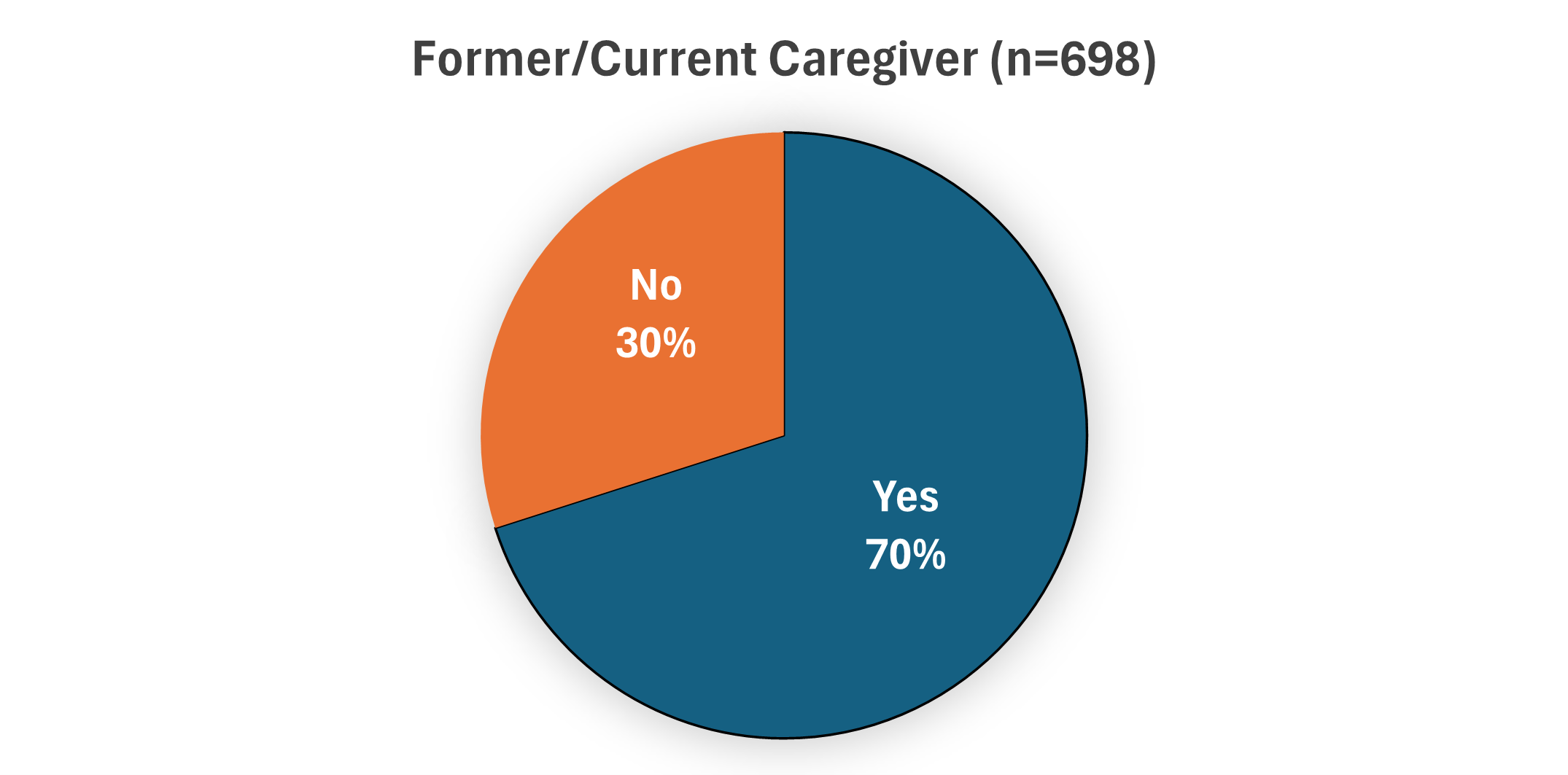
According to the responses, female caregivers significantly outnumber male caregivers with 358 current and former caregivers identifying as female and 129 current and former caregivers identifying as male. 1 person did not share their gender.
Of all those who identified themselves as a current or former caregiver, the majority (63.5%) provide care support to a FTD diagnosed spouse and 16.3% care for a parent.
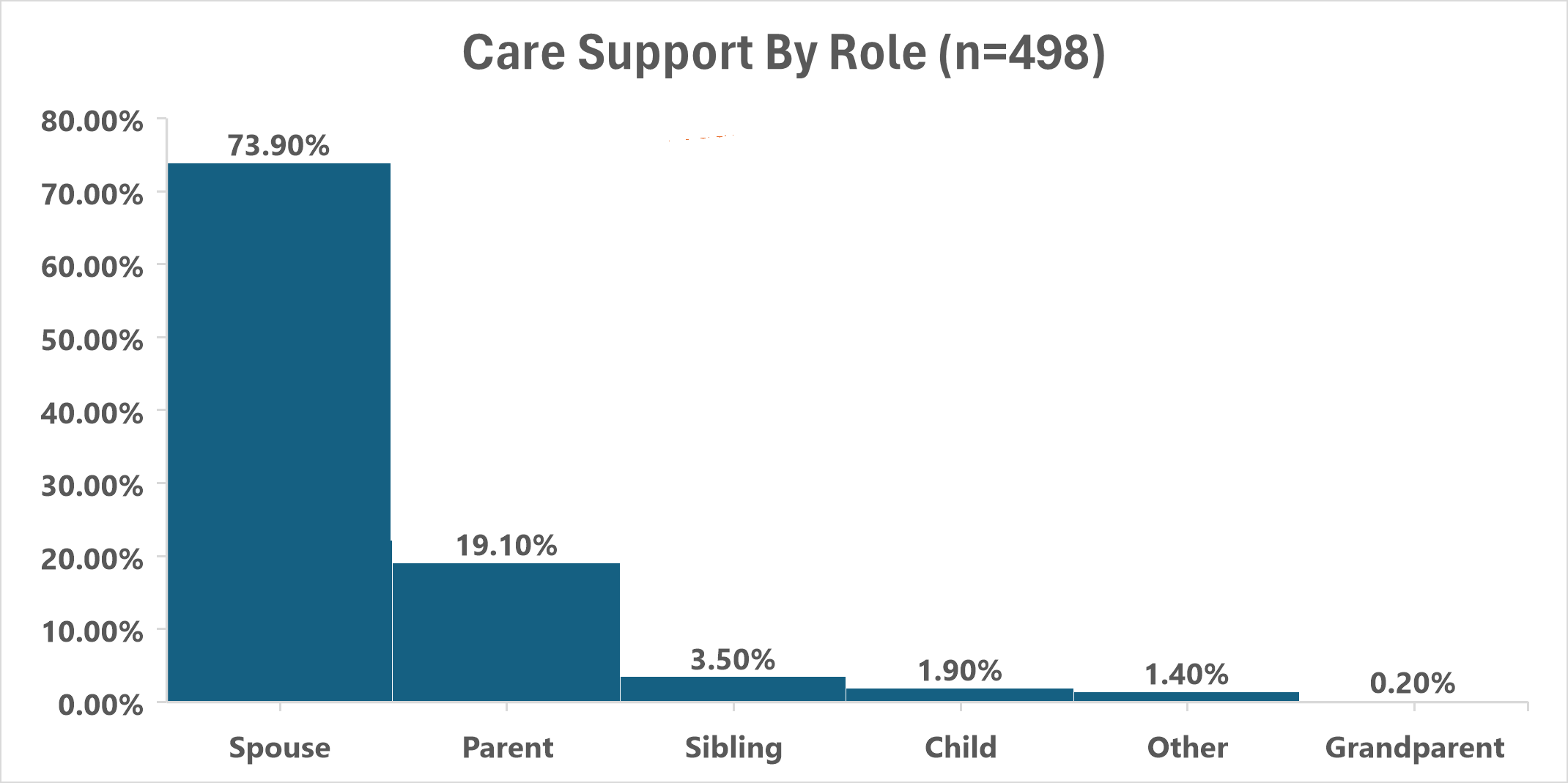
A significant portion (41.1%) of caregivers provide over 20 hours of care per day.
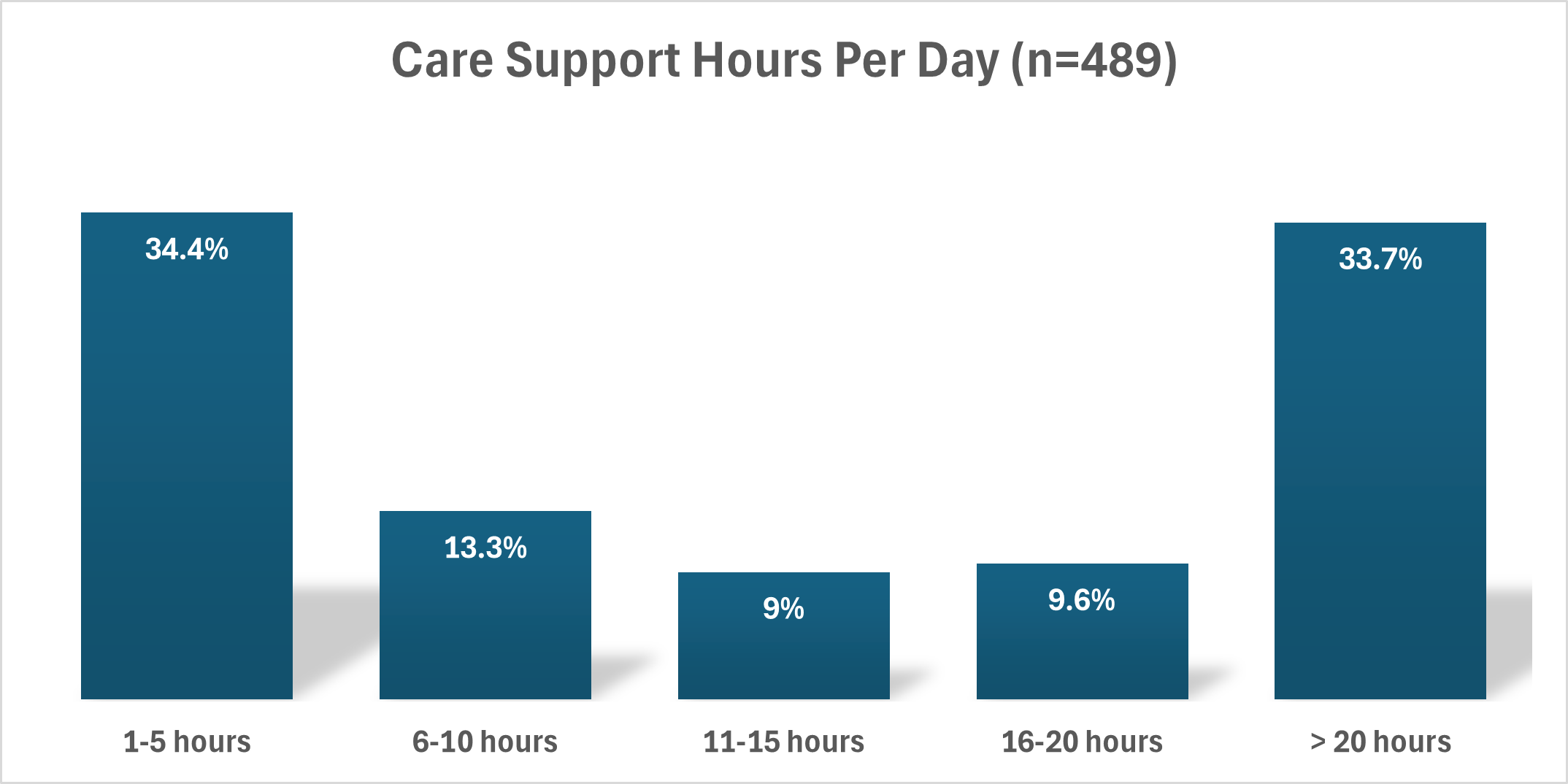
The majority (57.1%) of caregivers who responded are between 51-70 years old.
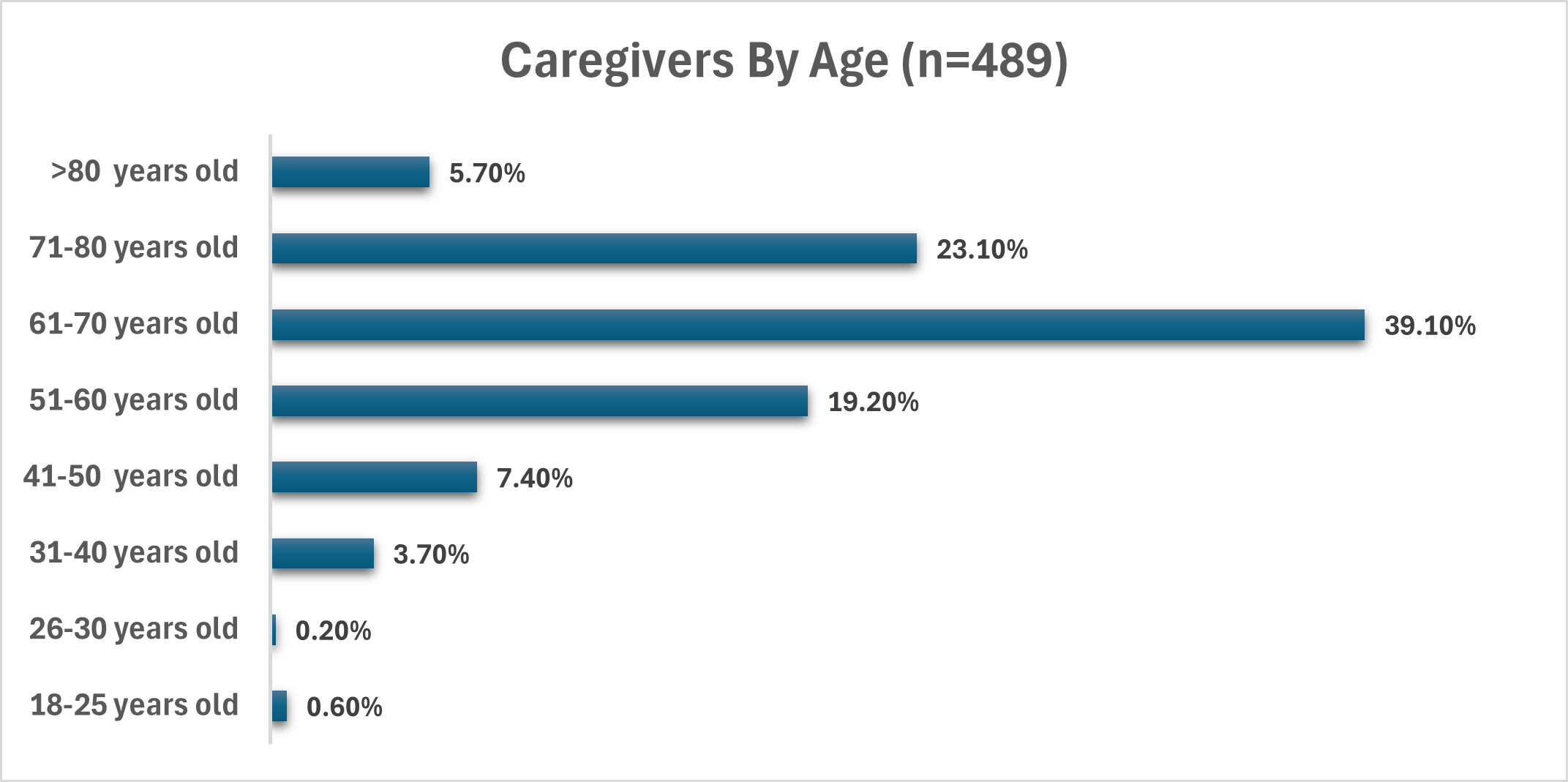
34.36% of caregivers provide between one and five hours of care per day. 33.74% provide almost round-the-clock care greater than 20 hours a day.
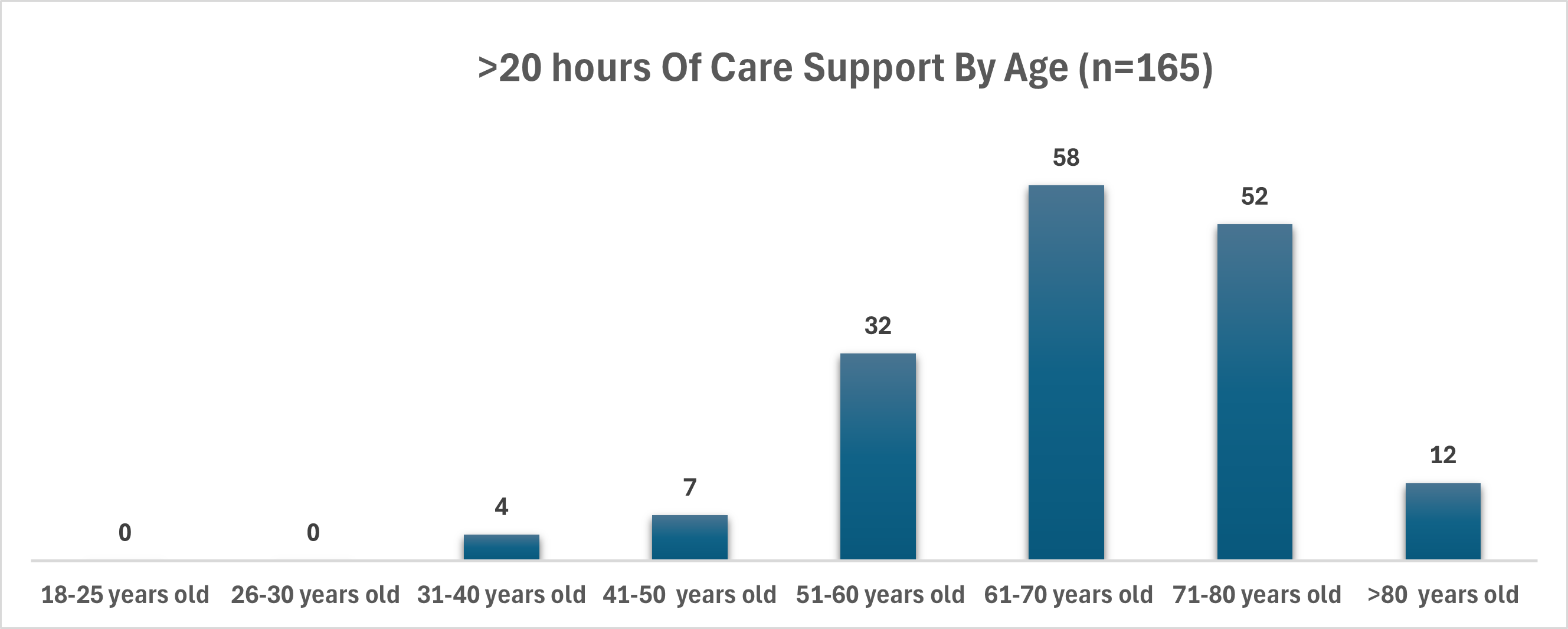
Caregivers who responded to the Quick Question are caring or have cared for their loved one through the full spectrum of stages. Mid-stage or moderate cognitive decline had the highest number of caregivers (190), followed by those whose loved ones have passed on (147), and then late stage or severe cognitive decline (121).
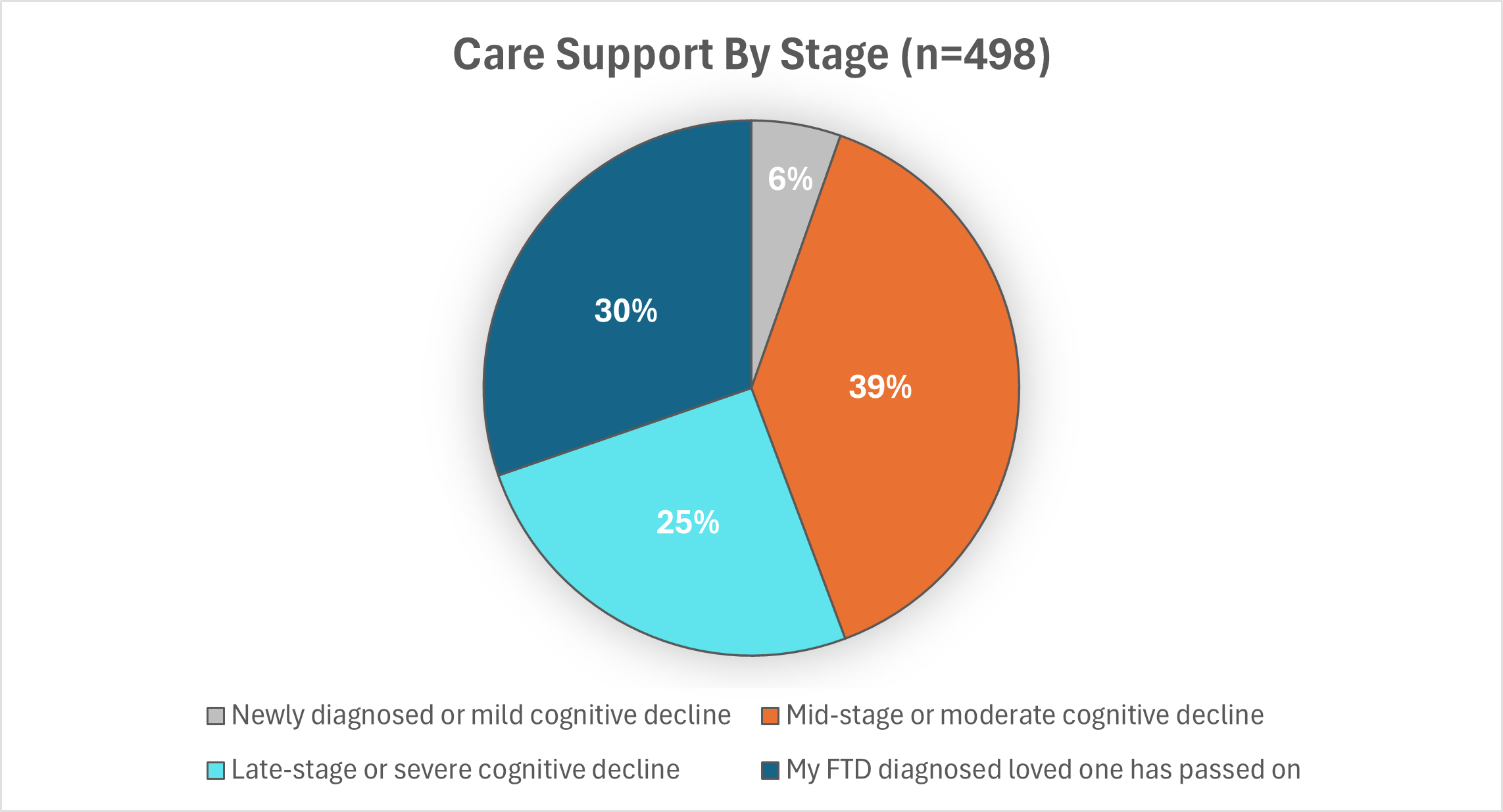
Younger caregivers (31-50) have a higher proportion of cases where their loved one has passed on
The newly diagnosed stage has a more even distribution across age groups, though it is still primarily made up of older caregivers.
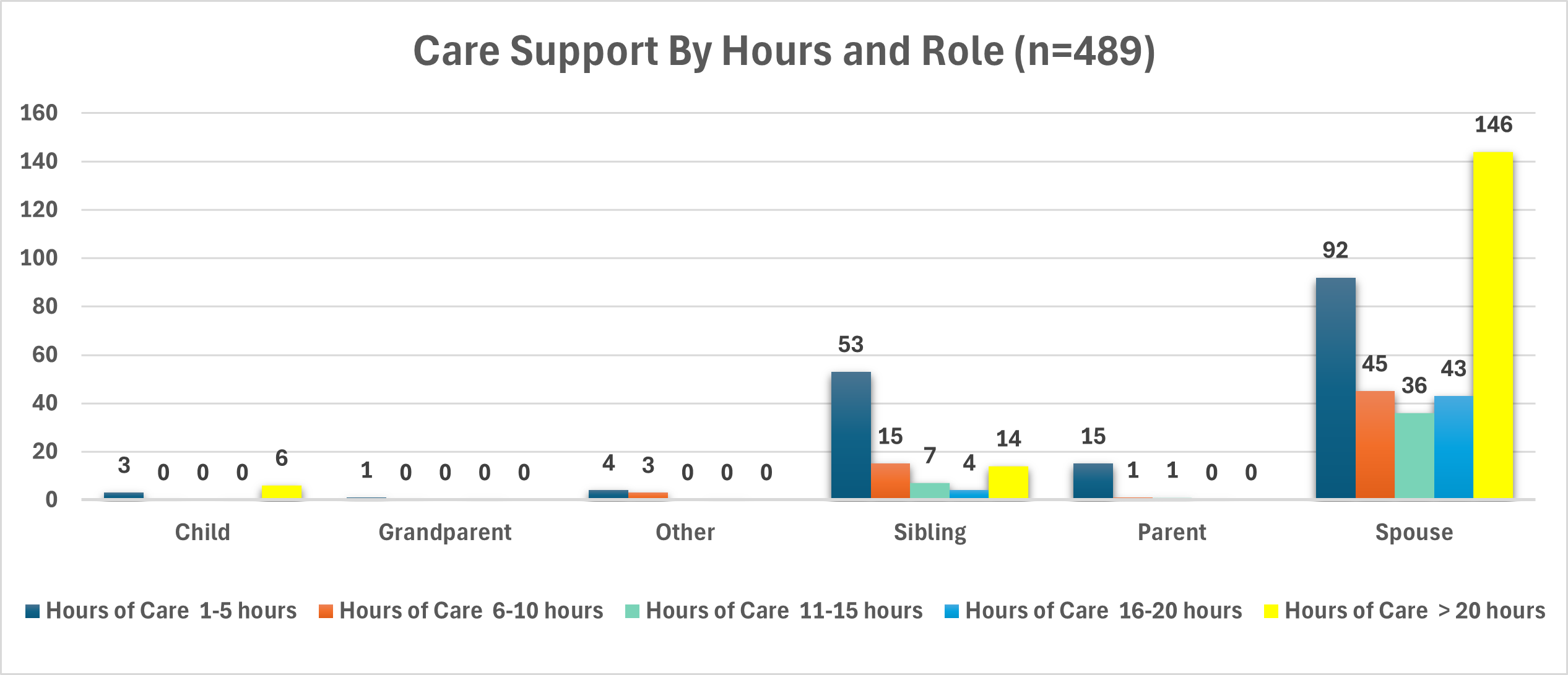
The typical profile of a caregiver providing more than 20 hours of care per day for a loved one with an FTD disorder is a female spouse, aged between 61-80 years old, caring for a partner in the mid to late stages of FTD.
Together we can find a cure for ftd
The FTD Disorders Registry is a powerful tool in the movement to create therapies and find a cure. Together we can help change the course of the disease and put an end to FTD.
Your privacy is important! We promise to protect it. We will not share your contact information.



